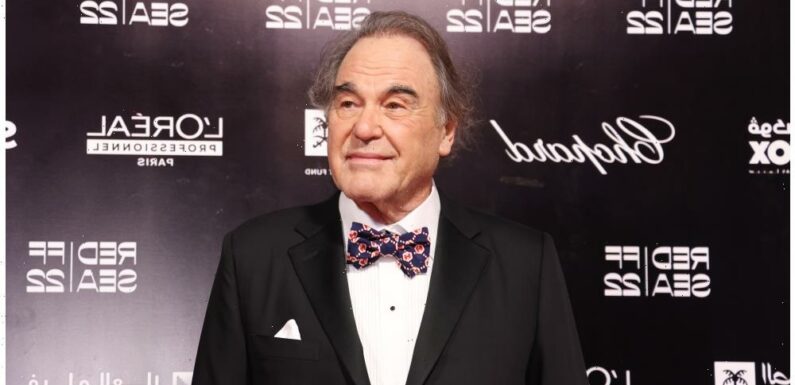
As jury president of the Red Sea Film Festival in Saudi Arabia, Oliver Stone is taking his role seriously. He sees the festival as an opportunity to explore the cinema being made in a region of the world he views as being misunderstood: “It’s a chance to really dip into the very fascinating Asian and African cinema. There’s a lot of big changes going on. You know, there’s a whole new world and they’re learning how to use film to tell their stories.”
Stone alluded to these changes in his remarks at the opening ceremony: “You see the changes that are coming here, the reforms. I think people who judge too harshly should come and visit this place and see for themselves.”
It was a remark that was bound to cause controversy among critics of the Kingdom’s human rights record. But Stone is unrepentant. “I meant what I said,” the “Platoon” and “JFK” director made clear. “Human rights, Jesus Christ! […] America should look to itself with Julian Assange before they start criticizing other people. Because that’s the worst case I’ve heard. […] America has certainly got a long list of crimes. I don’t think they should be pointing any fingers at anybody.” Stone cites the Iraq War as a particularly egregious example of heavy-handed American intervention.
He continues: “Now they’re arguing about women in Iran? What about here? They’re making tremendous reforms for women. They can’t mention that? You know, all they mention is a murder several years ago. There’s a lot of murders that go on in their country. What they’re doing to Assange is, in some ways, worse than cutting up somebody. It’s killing them slowly. Right. Okay. Enough said.”
The “murder several years ago” is a reference to the killing by Saudi government agents of Jamal Khashoggi, the Saudi-American dissident, in 2018.
Returning to film, Stone talks about how he finds the new cinema inspiring. “Certainly, it gives me cause to say I miss my career. I should come back and make 10 more films. I feel horrible. I want to make some of these different stories, but I have maybe one film left. You know, I’m 76 now, right? So yeah. The new movies have gotten in so many ways more sophisticated, better shot. These young kids, young people, have the benefit of seeing everything we did. So naturally, there’s improvements and changes. The question is: what’s changing in the environment? Is there a content change? And are the younger generation more cynical? You know, these are questions that are valid. So yeah, it certainly renews the fountain of desire. But you can’t make films that easily anymore. The film business is kind of horrible, right? It’s never been in worse shape.”
Could “JFK” be made today? Stone insists: “Not even close. You had to have some guts. I mean, a lot of filmmakers will tell you that but it’s true. You did need a lot of guts to make that and Warner Bros. did take a lot of hits on it. We got a lot of establishment criticism. But Terry Semel and Bob Daly, they stuck with it. They said it’s a good movie. What the fuck?”
Stone says he does have a feature lined up but would rather not talk about it. “I may not be able to pull it off. In the last few years. I’ve had setbacks. I was able to do two documentaries. Very complicated ones. This last one was on nuclear energy. Have you seen it?”
“Nuclear” argues for the massive promotion of nuclear energy as the solution to halt global warming. It is a subject Stone feels passionate about. He is also working on the second volume of his memoir “Chasing the Light.” One of the strengths of the extraordinary first volume is Stone’s willingness to admit when he has been wrong in the past, rather than expand only on his successes. “That was the point. Failure was also a learning process. A tremendous amount of failure. And in the movie business, it’s the same thing for me. People hear about the successes but they don’t hear about the failures.”
Read More About:
Source: Read Full Article